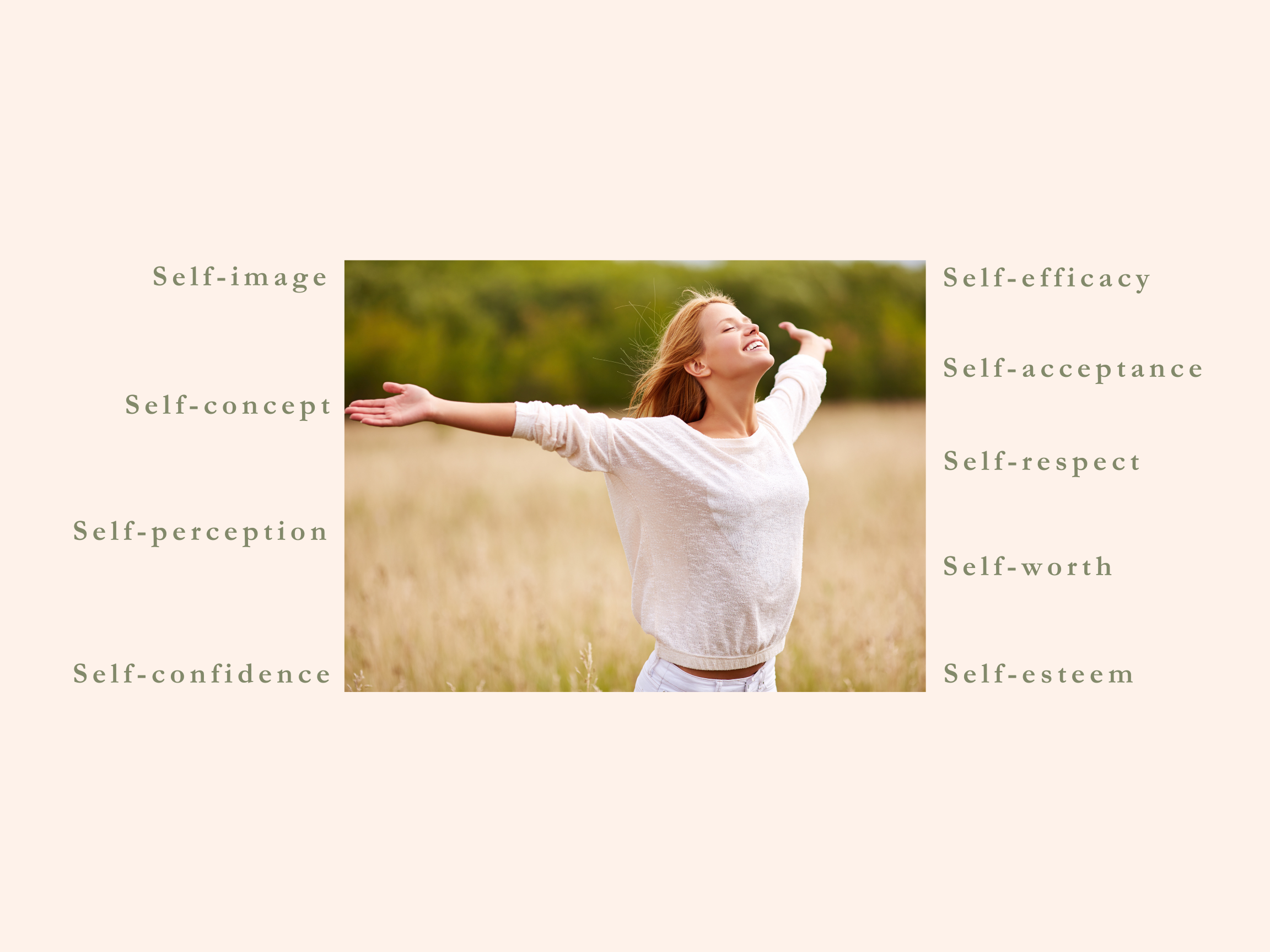What do we mean by “low self-esteem”?
All these words refer to aspects of the way we view ourselves, the thoughts we have about ourselves, and the value we place on ourselves as people.
Each of the above concepts has a slightly different shade of meaning. “Self-image”, “self-concept” and “self-perception” all refer to the overall picture a person has of himself or herself, e.g. “I am English”, “I am a mother”, “I am tall”.
“Self-confidence” and “self-efficacy”, on the other hand, refer to our sense that we can do things successfully, and maybe to a particular standard, e.g. “I am good at maths”, “I am a good listener”, “I am good in a crisis”
“Self-acceptance”, “self-respect”, “self-worth,” and “self-esteem” introduce a different element. They do not simply refer to qualities we assign to ourselves, whether good or bad and they do not simply reflect things we believe we can or cannot do. They reflect the overall opinion we have of ourselves and the value we place on ourselves as people. Their tone may be positive (e.g., “I am good”, “I am worthwhile”) or negative (e.g. “I am bad”, “I am useless”).
When the tone is negative, we are talking about low self-esteem.
Features of Low Self Esteem
When you have low self-esteem, you tend to see yourself, the world, and your future more negatively and critically. You might talk to yourself harshly in your mind, telling yourself things like "How could I be so thoughtless" or "How could I be so stupid”.
These are not just transient negative automatic thought that we all might have from time to time in a particular difficult situation, but in low self esteem, these are global ideas about the self that keep on reoccurring in most situations.
If you have low self-esteem, you might be always trying to please other people, or go ‘above and beyond’ at work or with your friends and family. As long as you keep meeting these standards you may feel OK, but there will inevitably be times when it’s not possible to do so, and this can quickly leave you feeling low and anxious.
When you encounter challenges, negative beliefs about the self are activated. This generates negative predictions about what could go wrong, and generates anxiety and low mood. To compensate or stop the bad prediction from happening, we can take unhelpful precautions. These actions, intended to cope, can reinforce the negative belief or “contaminate” the outcome, confirming the core belief.
What keeps low self-esteem going?
Throughout our lives, we form negative beliefs or “core beliefs” about ourselves as a result of the way we have been treated, for example “I’m worthless” or “I’m no good”.
Confronting core beliefs feels unpleasant, so we develop “rules for living” that protect us from our core beliefs. These rules guide how we live our lives, and as long as our rules don’t get broken, our core belief stays dormant.
People with low self-esteem often have rules that are demanding and rigid, such as “I must always please other people” or “As long as I don’t get criticized, then I’m OK”.
It can feel very anxiety-provoking when it seems like one of our rules might be broken. If one of your rules is “I’m OK as long as everyone is happy”, it might be anxiety provoking if people around you are not happy, you might feel that you have failed.
When there is a danger that rules might be broken, we make anxious predictions about what might happen and fear the worst (e.g. “I’ll be rejected if I can’t do everything that is expected of me”), or we might speak to ourselves in a critical way, or avoid tricky situations and use strategies to cope.
Our rules were developed to protect us, but are often rather inflexible and they can stop things from getting better. Although our safety strategies can make us feel good in the short-term, all of them can keep our core belief from changing, and our self-esteem doesn’t improve.
Treatments for low self-esteem
Research studies have shown that Cognitive Behavioural Therapy (CBT) is one of the most effective treatments for low self-esteem. I combine Clinical Hypnotherapy with Dr. Melanie Fennell’s CBT model of low self-esteem to help you:
Identify your core beliefs
Identify your rules for living
Develop healthier (more flexible) rules and beliefs
Test your negative predictions using behavioural experiments
Face your fears and confront anxiety-provoking situations
Replace self-criticism with self-compassion
Live in line with your new core beliefs
Please don’t hesitate to reach out if you have any questions or would like to discuss further how I may be able to support you on your journey.


